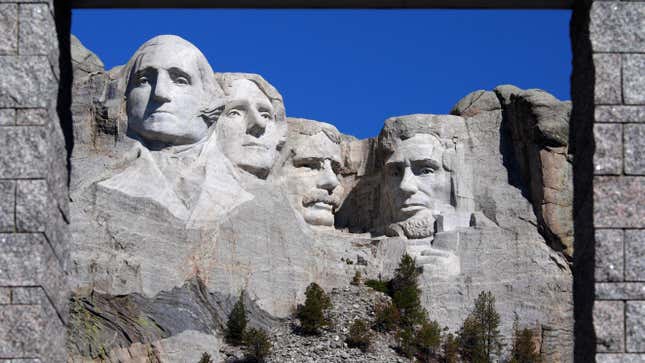
In the new History Channel documentary series “Thomas Jefferson,” America’s third president claimed that he had a plan to free enslaved Black Americans years before the American Revolution. Jefferson wrote in his memoir, “Autobiography of Thomas Jefferson,” that in 1769 he and his cousin proposed a bill that would shift control of emancipation from the general court to slave owners.
He stated that the House of Burgesses killed the bill immediately, but there is no proof of this event ever happening aside from Jefferson’s claims. Seeing as he owned hundreds of slaves that he never actually freed and wrote about the inherent inferiority of Black people, it’s safe to assume that this is most likely untrue.
Jefferson, George Washington, John Adams, Benjamin Franklin, Alexander Hamilton, John Jay and James Madison are considered this country’s “Founding Fathers.” Here are more misconceptions about these men as it pertains to Black people and the institution of slavery.
The “Founding Fathers” believed all men were created equal
“We hold these truths to be self-evident, that all men are created equal,” the Declaration of Independence states. The phrase was adopted in 1776, though slavery was being practiced and brutal violence was being enacted on Black people. Jefferson himself fathered six children by Sally Hemings, an enslaved woman whom he raped.
All of the ‘Founding Fathers’ were slave owners
Out of the seven ‘Founding Fathers,’ only John Adams and Samuel Adams didn’t own slaves. Both men were Northerners. Thomas Jefferson and George Washington hailed from Virginia and considered slavery an “evil” practice, but owned hundreds of them.
George Washington left slaves for his family to inherit
George Washington wrote his will just a few months before his death in 1799. In it, Washington left instructions for the enslaved people that he owned to be freed after the passing of his wife Martha. Around 120 slaves out of 317 at his Mount Vernon estate were eligible to be freed according to the will. But by law, neither George nor Martha Washington could free the slaves owned their adoptive son, George Washington Parke Custis.
Thomas Jefferson never condemned slavery
Despite owning hundreds of slaves in his lifetime, Thomas Jefferson called slavery an “assemblage of horrors.” In his initial draft of the Declaration of Independence, he blamed the inhumane practice in the American colonies on the British king. “He has waged cruel war against human nature itself, violating its most sacred rights of life & liberty in the persons of a distant people who never offended him, captivating & carrying them into slavery in another hemisphere,” Jefferson wrote. The passage was dropped by the Second Continental Congress.
The Founding Fathers never became abolitionists
Though John Jay was a slaveowner, his views on the heinous institution would change. He unsuccessfully tried to abolish slavery in 1777 in the State of New York. Jay would later sign the Gradual Emancipation Act into law while Governor of that state. In 1785, he wrote that he “wish[ed] to see all unjust and unnecessary Discrimination every where abolished; and that the Time may soon come when all our Inhabitants of every Color and Denomination shall be free, and equal partakers of our political Liberty.”

